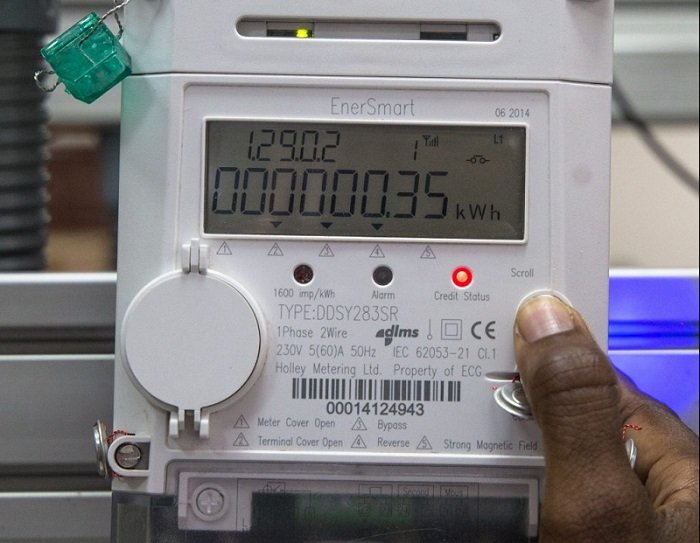Editorial
Enough of the destruction!

Dear Editor,
About a month ago, I wrote about the rift between the Electricity Company of Ghana and residents of Somanya in the Yilo Krobo District and asked the parties involved to resolve their differences amicably.
But just when I thought the tension was easing, I read the news report about how some residents have decided to vent their spleen on electric poles belonging to the service provider.
This development is unfortunate and makes some of us wonder whether, indeed, the people are listening to the plea by management of the company and that of their own traditional authority.
We are told the area has been without electricity, since July 27, 2022, due to the decision of the ECG to cut power to the area following actions by a section of the people not to allow the company to replace their postpaid meters with prepaid ones.
However, the chiefs and the people of the District recently appealed to the ECG to restore power supply to the area to enable residents to go about economic activities but I ask how power can be restored when “faceless” persons go about cutting down the same poles that are supposed to supply power to the area.
I wish to state that citizens cannot continue to take the law into their own hands, no matter the level of their grievances. We are told some of the poles have been replaced but that will certainly come at a cost to the service provider.
If these unfortunate incidents continue to happen, I fear the chiefs and people of the area would have a lot to do in order to restore their waning reputation. I think the residents have expressed their anger well enough and it is time the lawlessness was stopped as the matter is being resolved.
Frank Gyamfi,
Taifa, Accra.
Editorial
Would there ever be beds?
Dear Editor,
I WRITE to condemn the circumstances under which an accident victim died recently after three major hospitals reportedly turned him away due to what has earned a place in our local parlance as ‘no bed syndrome.’
Reports suggested that this motor rider who got knocked by a vehicle was taken to three major hospitals – Police Hospital, Greater Accra Regional Hospital (Ridge Hospital), and the Korle-bu Teaching Hospital – but they all claimed they had no beds.
But one may ask, would there ever be beds?
Such is the treatment Ghanaians endure every now and then when one visits our hospitals, especially the public ones which are run with the taxpayers’ money. Many a time when one visits the hospitals, the sight of patients admitted and lying on benches, and some sitting on chairs while receiving care, is visible to all; making one wonder why this particular motor rider was not admitted at any of the facilities, looking at his condition.
This leads to the reason for this letter, which is to bring out a perceived apathy against these motor riders, the majority of whom are referred to as ‘Okada’ riders.
Due to their recklessness on the roads and the inconvenience caused to commuters, people always speak ill about them; drivers equally have no regard for them. Every user of public transport would attest to this. These riders are blamed for every offence, even when it is obvious drivers may be at fault sometimes.
Motor riders have become like orphans on the road; people care less about them, and when they are unfortunately knocked down, no one cares about them.
This is the mischief our authorities and agencies, including the police, must seek to cure to make the road safe for all users.
These are young folks that want to make a living for themselves, and with no skill or education, ‘Okada’ rides have become their source of livelihood. They need the protection accorded drivers and commuters as well.
In other countries, some facilities have been provided to make their work safer, but in Ghana, we lack them, leaving them with no alternative than to share the available space with the cars.
What has happened should serve as a wake-up call on our authorities to aim to take a second look at the ‘Okada’ menace. With the numbers increasing, there should be a way to regulate them because no government would have the guts to ban it totally.
Drivers should be made to accept the reality that they are sharing the roads with them, and therefore the need for patience and tolerance.
For some of our hospitals, I suggest the Ministry of Health conduct their own investigations to see what patients go through in accessing medicare, which is even not for free.
Thank you, Editor, for the space.
F. Morgan, Kokrobite
Editorial
Ending the ‘No Bed’ syndrome
Dear Editor,
THE heartbreaking death of 29-year-old engineer Charles Amissah in a hit-and-run accident has exposed once again the failures in our health system.
Even more painful is the fact that his father had previously donated beds to some hospitals, yet when his son needed urgent care, he was moved from one facility to another because there were ‘no beds.’
This is not only tragic but unacceptable. How can a country lose its bright young citizens simply because hospitals cannot provide emergency treatment? The ‘no bed syndrome’ has become a national disgrace, and Charles’ death is a reminder that reforms cannot wait.
Our hospitals must be equipped to handle emergencies, and accountability must be enforced. If donations are made to improve facilities, then those facilities must serve the people when it matters most. Ghana cannot afford to keep losing lives to negligence and poor infrastructure.
Charles Amissah’s death should be the turning point. Let us honor his memory by fixing the system so that no family would suffer this kind of preventable loss again.
Princess Wonovi
Accra
Join our WhatsApp Channel now!
https://whatsapp.com/channel/0029VbBElzjInlqHhl1aTU27







